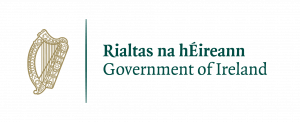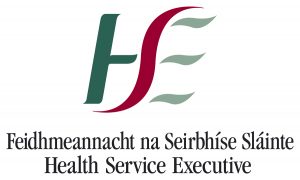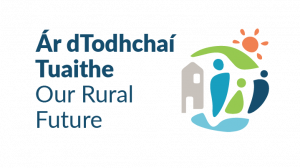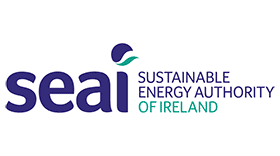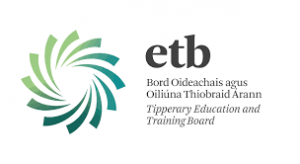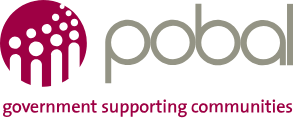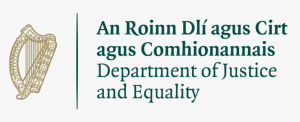Introduction
COVID-19, also known as coronavirus, is a new illness that can affect your lungs and airways.
Ireland’s first case of coronavirus was confirmed on 29 February 2020. You can get detailed information on Ireland’s response to COVID-19 (coronavirus) and the latest updates on gov.ie.
Current measures in Ireland
The Taoiseach, Leo Varadkar, and Minister for Health, Simon Harris, have issued strict guidelines for people to stay at home from midnight on 27 March 2020.
The main rule is to STAY AT HOME. You can only leave your home to:
- Travel to or from work if you are providing an essential service
- Shop for food. You can get the list of essential retail outlets from gov.ie.
- Collect medical prescriptions and medical supplies and go to medical appointments
- Carry out vital services like caring (including family carers)
- Exercise briefly within 2 kilometres of your house. (You can bring children but must keep 2 metres away from others for social distancing)
- Do farm work
You cannot arrange a gathering with anybody you do not live with.
Everyone who can work from home must work from home. This includes essential workers and workers in essential government, utilities or other functions. You can only travel to work if you are providing an essential service.
Cocooning is introduced to protect people over 70 and people who are extremely medically vulnerable to COVID-19. This means that their interaction with others is minimised and that these people should not leave their homes. Even within their homes they should minimise all non-essential contact with other members of their household. Read more about what cocooning is and what you should do.
These measures are in place until until Sunday 12 April. Read more about the new measures on gov.ie.
Read more about public health measures for COVID-19.
During the pandemic the Health Service Executive (HSE) is recruiting additional staff to work in the health services.
Previous measures
Measures to delay the spread of the virus, taken on 12 March 2020, included closing schools, colleges, childcare facilities and state-run cultural institutions. Pubs were also advised to close. Further measures were announced on 24 March 2020.
Health information
The Health Service Executive (HSE) provides health information on coronavirus, including:
- The symptoms and causes of coronavirus
- When to call a doctor
- How to protect yourself and others
- Groups at increased risk from coronavirus and what they should do
- Pregnancy and coronavirus
If you develop symptoms you will need to self-isolate and phone your GP. Do not go to a GP surgery, pharmacy or hospital. The GP will assess you over the phone. If they think you need to be tested for coronavirus, they will arrange a test.
Testing for COVID-19
Read about testing for coronavirus, including:
- How to get a test
- What to do when you are waiting to be tested
- How you get test results
The HSE also provides information on minding your mental health during the coronavirus pandemic.
Employment and income supports
People who have lost employment
The Temporary COVID-19 Wage Subsidy Scheme was announced on 24 March. It is run by Revenue and allows employers to continue to pay their employees during the COVID-19 pandemic. The scheme will run for 12 weeks from 26 March 2020. The scheme will refund employers up to a maximum of €410 for each qualifying employee. Self-employed people should apply for the COVID-19 Pandemic Unemployment Payment.
If your employer cannot continue to pay you and has to lay you off during the pandemic, you can claim income supports from the Department of Employment Affairs and Social Protection.
The new COVID-19 Pandemic Unemployment Payment is available to employees, self-employed people, students and non-EEA nationals who have lost all their employment due to the COVID-19 pandemic. The payment has a simple one–page application form and is paid at a flat rate payment of €350 per week. Read our document on the new COVID-19 Pandemic Unemployment Payment.
If your working hours are reduced to 3 days or less per week you should apply for Short Time Work Support which is a form of Jobseeker’s Benefit.
Under the Emergency Measures in the Public Interest (COVID-19) Bill, you will not be able to claim redundancy during the emergency period if you were laid off or put on short-time work as a result of the COVID-19 pandemic.
Find out more about:
People who are ill
If you are diagnosed with COVID-19 or are medically required to self-isolate, you can get enhanced Illness Benefit or Supplementary Welfare Allowance.
If you are on an employment programme such as Community Employment (CE) and Tús or a funded training and education programme, or if you are already getting a social welfare payment, you do not need to apply for Illness Benefit. Your existing payment will continue to be paid if you are affected by coronavirus.
If you have coronavirus symptoms or you have been medically required to self-isolate, you should not visit an Intreo Centre or local Social Welfare Branch Office. You can get information about applying for social welfare payments through MyWelfare. You can also call 1890 800 024.
Two-weekly social welfare payments
On 19 March 2020, DEASP announced that social welfare payments will paid on a double (two-week) basis. This means that instead of being paid weekly, you will be paid your social welfare payment every 2 weeks. This reduces the need for people to leave home during the COVID-19 pandemic to collect social welfare payments in post offices and support social distancing. The new measure applies both to people who collect their payments at post offices and people who are paid into a bank account.
The double payment will be made on some social welfare schemes next week (starting 23 March). People on the remaining schemes will be paid their 2 weeks entitlement in a single payment the following week.
You can find out when your double payment will be paid on gov.ie.
Find out more about coronavirus and social welfare payments.
Registering a birth or death
The requirement to attend a civil registration service to register a birth or death has been suspended during the COVID-19 pandemic. You can find out how to register a birth or how to register a death in Ireland during the COVID-19 pandemic on gov.ie.
Mortgages and loans
On 18 March 2020 the 5 retail banks (AIB, Bank of Ireland, KBC, Permanent tsb and Ulster Bank), along with their representative body Banking & Payments Federation Ireland (BPFI) announced a series of measures to support personal customers and businesses impacted by the COVID-19 pandemic.
These include:
- A payment break of up to 3 months for businesses and personal cusomers. If you want to request a payment break, you should contact your bank directly.
- Flexibility for bank customers with buy-to-let properties that have tenants impacted by COVID-19. These landlords can seek a mortgage payment break of up to 3 months which they can pass on to their tenants.
- A simplified application process to make it easy for businesses and personal customers to get support from their bank.
- A solution to ensure that COVID-19 applications for a payment break will not affect credit ratings.
- Deferral of court proceedings for 3 months.
If you are experiencing financial difficulty during the COVID-19 pandemic, you should contact your bank as soon as possible to discuss the options available. You can read our document on Your finances and COVID-19.
Tenants and rent
Emergency measures were announced on 19 March 2020 to protect tenants impacted by COVID-19. These are:
- A moratorium on notices to leave rental accommodation and a moratorium on rent increases for the duration of the COVID-19 pandemic
- An increase in the notice period for tenancies of less than six months from 28 to 90 days
These provisions are set out in the Emergency Measures in the Public Interest (Covid-19) Bill 2020 (pdf).
While tenants are expected to pay rent during the COVID-19 pandemic, income supports and Rent Supplement are available to you if you are struggling to pay. These supports are provided by the Department of Employment Affairs and Social Protection. Any rent arrears built up will be payable, but landlords have been asked to show understanding and reach local arrangements in these circumstances.
If you are a tenant and you will have problems with your rent payments as a result of the COVID-19 pandemic, you should engage as soon as possible with your landlord.
Housing Assistance Payment (HAP) tenancies
If you are a HAP tenant and you do not experience any change in your financial circumstances as a result of the steps being taken to combat COVID-19, HAP payments will continue to be made to your landlord and your differential rent will continue to be collected.
If you are a HAP tenant and you do experience a change in financial circumstances during the pandemic, before you contact your local authority, you should contact the DEASP and apply for the relevant income supports at MyWelfare.ie, for example the new COVID-19 Pandemic Unemployment Payment.
During COVID-19 measures and following the submission of DEASP documentation, any differential rent arrears that accumulate will be re-assessed and rectified, as appropriate, by your local authority in due course. This will not affect your HAP payment to your landlord.
Supports for tenants and landlords
Services are available for tenants and landlords in difficulty through the Residential Tenancies Board (RTB) and the national housing charity, Threshold, which operates the national Tenancy Protection Service.
The RTB provides a Dispute Resolution Process with a number of options for landlords and tenants to resolve disputes. You can contact the RTB on 0818 303037 or (01) 702 8100, from 8.30am to 6.30pm.
Threshold’s Tenancy Protection Service provides advice and support to tenants where there is a tenancy problem or where a tenancy is at risk. Threshold advisors can mediate with landlords and also help with applications for rent supplement. Call 1800 454 454, 9am-9pm, Monday to Friday for more information.
Utilities
The Commission for Regulation of Utilities (CRU), along with the gas and electricity suppliers recognise that some customers may be isolated at home over the coming days and weeks.
With effect from 17 March 2020, the following measures have been put in place to help you remain connected to your electricity and gas supplies during this period:
- Domestic disconnections are suspended until 19 April
- Emergency credit levels for prepaid (Pay As You Go) gas meters will increase from €10 to €100
- Suppliers will offer online and over the phone top up services if you have a prepaid (Pay As You Go) electricity meter and cannot reach a shop
You can read the full announcement on the CRU’s website.
Education
From the evening of 12 March 2020, all schools, colleges and childcare facilities in Ireland closed. While children are at home, they should practice social distancing such as minimising social contact, avoiding meeting up and keeping physical space between them and other people.
Parents and guardians are urged to support their children to maintain this approach. The Department of Education and Skills has information about Talking to children and young people about COVID-19 (pdf).
Leaving Certificate and Junior Certificate exams
The state examinations oral and practical performance tests which were scheduled to take place from Monday, 23 March, to Friday, 3 April 2020, are cancelled. All students who were due to take these tests will be awarded full marks for this portion of the exam.
Students scheduled to complete project work from Friday, 20 March, to Friday, 24 April 2020, depending on the subject, will now be given until Friday, 15 May 2020, to complete this work.
The Department and the State Examinations Commission will monitor the potential impact the COVID-19 pandemic may have on the other later scheduled components of the state examinations
Immigration
Our document, Immigration and employment permits during COVID-19 has information about:
- Renewing immigration permission
- Visas
- International protection
- Employment permits
- Student visas
Returning to Ireland
You can read our document on returning to Ireland and COVID-19.
Travel
You are currently advised to avoid traveling abroad unless the travel is essential. The advice against non-essential travel applies until further notice.
If you must travel abroad, you should follow the travel advice of the Department of Foreign Affairs and Trade.
Read the HSE advice if you are arriving in Ireland from another country.
Passports
Passport offices are closed from 30 March until further notice. If you have already applied for a passport, or have applied to renew your passport, the application will be processed once normal services resume. The Passport Service’s phone line is also closed during this period.
Post offices are not accepting Passport Express applications, and you cannot attend the passport office in person. If you wish to apply for a new passport, you can use the passport online service.
Cancellation and your consumer rights
You can read about your rights if your trip abroad is cancelled, or if you cannot travel because of coronavirus, in our document travelplans and COVID-19
Driving and public transport
Public transport is restricted to essential workers only between 28 March and 12 April. All public transport operators will run reduced services from 30 March to 12 April.
Driving licences and driving tests
Driver theory tests and practical tests are suspended until 19 April, except for people who are working in essential services such as healthcare or supply chain jobs.
The National Driving Licence Service (NDLS) and the National Car Testing Service (NCTS) will be closed until 19 April. The Minister for Transport, Tourism and Sport has said that he plans to allow for NCT and licences to be automatically renewed during the emergency period. More information will be available this week.
Older people
You can read our document on supports for older people during the coronavirus pandemic.
Source: https://www.citizensinformation.ie/en/health/covid19_overview.html




